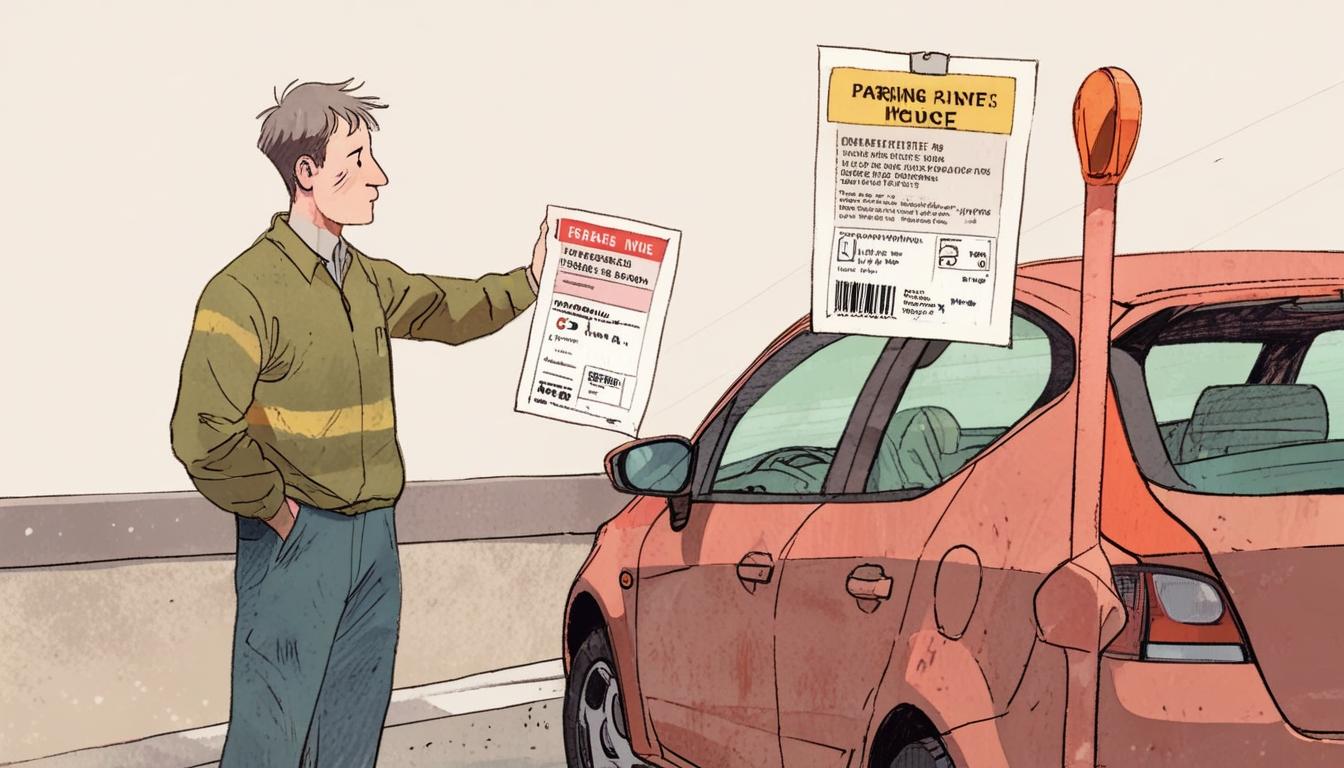Concerns Emerge Over Legitimacy of Parking Fines in Abertillery
Recent events in Abertillery have cast a shadow over the practices of parking enforcement, notably regarding the issuance of penalty notices by a private company in relation to public parking bays. Local residents have come forward, revealing a troubling trend wherein dozens of individuals have received £100 parking fines—despite reports indicating that the bays in question are officially recognised as public spaces, a fact corroborated by Blaenau Gwent Council.
The situation has raised significant questions about the legitimacy of these fines. As individuals affected by the notices have stated, requests for clear photographic evidence validating these violations have largely gone unanswered. These practices have been described by many residents as ‘bully tactics’, with some reporting threats of additional charges or bailiff action if payments are not forthcoming.
Amanda Davies, one of the many affected individuals, recounted her experience of paying a reduced £60 fine under duress. “I received the notice just before going away and paid it in a moment of panic,” she shared. Further articulating her confusion, she noted, “The only evidence provided was of my car driving down the side of Iceland and exiting. That does not clearly demonstrate a parking violation.” This highlights a significant gap between the enforcement procedures of the private parking company and the expectations of lawful and transparent practices as mandated by local governance.
Such situations illuminate broader concerns regarding the implications for vulnerable individuals who find themselves caught in these enforcement mechanisms. One resident shared their distress, saying, “I paid £60 straight away because they said it would go up to £100, and I suffer with depression and anxiety.” This reflects the critical need for clearer communication and support systems for those who may not fully understand their rights or the processes unfolding around them in parking disputes.
Local activist Neil Milkins, who has been vocal in raising awareness of this issue, continues to hear from concerned residents. He revealed that complaints have surged, stating, “Dozens of people have since March 2024 been sent £100 penalty notices.” Alarmingly, he reported instances of individuals receiving multiple notices, often coerced into paying early to avoid further charges that could escalate dramatically.
While the council has operated under Civil Parking Enforcement (CPE) protocols since 2019 to manage traffic flow and road safety, the significant amount of revenue generated from parking fines has sparked debates about the ethical practices of private parking enforcement, particularly as councils in Wales collectively earned £21 million from fines. This prompts a closer examination of how these funds are then utilised—an assertion that Blaenau Gwent Council states is directed back into local transport infrastructure.
Concerns surrounding the methods employed by private parking firms are not new. A rising trend of miscommunication and questionable practices has been observed, with a shocking report from the BBC highlighting incidents of ‘self-ticketing’ attendants issuing wrongful penalties without appropriate permissions. This underscores an urgent need for regulation in the industry to safeguard motorists from exploitation.
Amidst these unfolding realities, the evidence-based steps available to individuals facing parking fines must be highlighted. Citizens Advice suggests that individuals dealing with Penalty Charge Notices (PCNs) issued by councils versus those from private companies must navigate distinctly different pathways for appeals, emphasising the importance of understanding which authority has jurisdiction in each scenario.
As this unsettling situation in Abertillery continues to evolve, the distinction between fair enforcement and undue pressure remains a critical conversation. Many motorists still feel beleaguered and uncertain about their rights in the face of what appears to be a flawed enforcement system, leading to a call for increased scrutiny and reform in parking regulation practices across the region.
Reference Map:
- Paragraph 1 – [1], [2]
- Paragraph 2 – [1], [6]
- Paragraph 3 – [1], [3]
- Paragraph 4 – [1], [5]
- Paragraph 5 – [3], [4]
- Paragraph 6 – [7]
Source: Noah Wire Services
